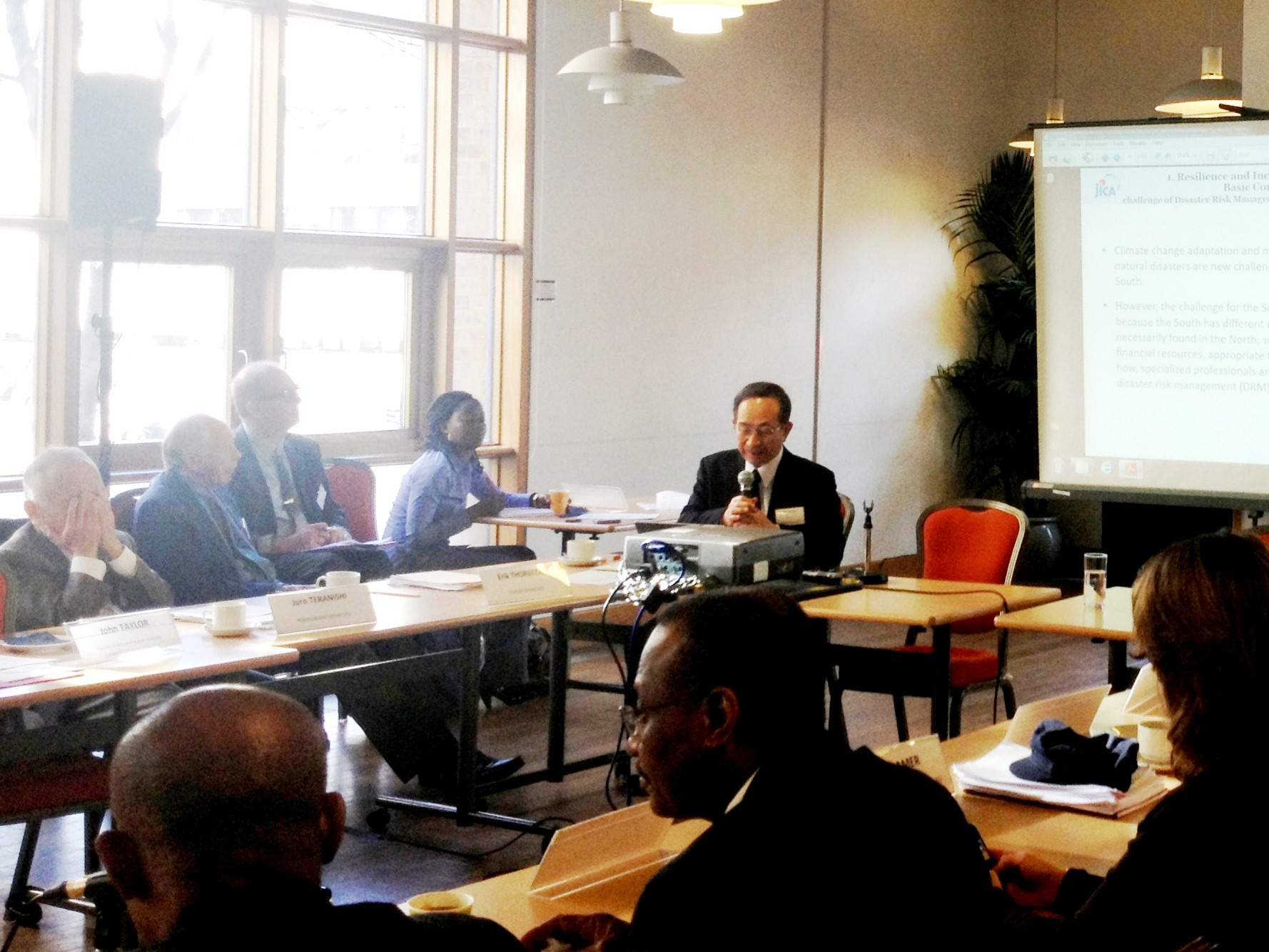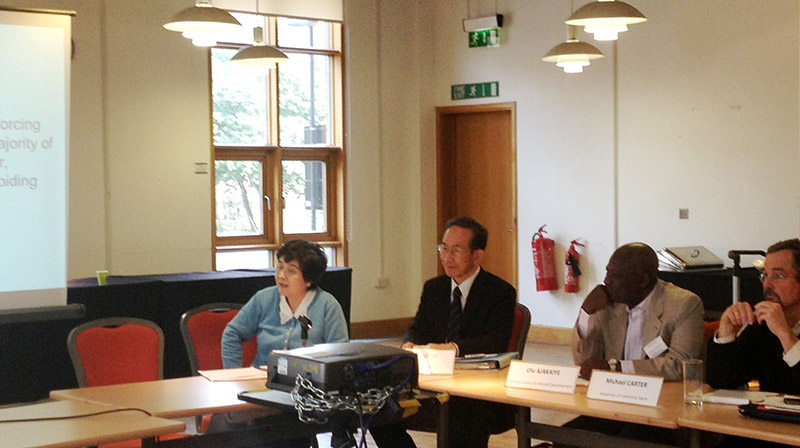JICA and SOAS Held a Joint Workshop on Inclusive Development in Africa
2013.03.01
On February 15 and 16, JICA and the School of Oriental and African Studies (SOAS), University of London, organized a joint workshop entitled “Institutional Foundation of Inclusive Development in Africa.” in London, UK. This workshop followed on the first one, which was also held here with a title of “Understanding Institutional Foundation for Inclusive Development through a Comparative Analysis of Asian and African Experiences.”
Last year’s workshop was the first attempt to explore how institutions and their structures and dynamics have affected the diversity and similarity in the course of development process in Asian and African countries. JICA, at this workshop, highlighted eight interrelated research areas, including “Resilience and Inclusive Development.” The workshop this year aimed to discuss the research findings in the aforementioned eight study areas and policy proposals based on these outcomes.
The distinguished participants included: Professor Gustav Ranis of Yale University, Professor Erik Thorbecke of Cornell University, Professor Andy McKay of the University of Sussex, and Professor Thandika Mkandawire of the London School of Economics. Japanese participants included: Professor Motoki Takahashi of Kobe University, Professor Emeritus Juro Teranishi of Hitotsubashi University, and Hiroyuki Kubota, Senior Advisor of the Rural Development Department at JICA. From international organizations, UNECA, the African Development Bank, the Asian Development Bank (European Representative Office), and UN-WIDER attended the event. JICA-RI Director Akio Hosono, also joining the workshop, presented policy recommendations based on one research area, “Resilience and Inclusive Development.”

Director Hosono's presentation
In his presentation, Hosono pointed out, “Those who live in high risk zones, because they don’t have other options due to poverty, are much more exposed to risks than others. Enhancing resilience is, therefore, essential for the poor not to be excluded from social system.” Then he listed three aspects that are crucial to disaster risk management in developing countries: (1) prevention and reduction of risk with use of the reconstruction design of the Great East Japan Earthquake; (2) tackle for the changes of risk over time, considering the effects of climate change, urbanization and others; and (3) the importance of capacity development in governments, particularly local governments, as well as in communities and citizens. Furthermore, as examples of disaster prevention measures in developing countries, he introduced JICA’s BOSAI and TAISHIN projects in Latin America, and noted that programs of urban redevelopment with land readjustment can be an effective approach to address urban poverty, slums and disaster prevention.
During the concluding session, Professor Machiko Nissanke of SOAS and Hosono as moderators, overviewed the policy recommendations for accelerating inclusive development in Africa, based on the presentation of Kimiaki Jin, Chief Representative of JICA UK Office.

Prof. Nissanke(left)、Director Hosono(the second from the left)

事業事前評価表(地球規模課題対応国際科学技術協力(SATREPS)).国際協力機構 地球環境部 . 防災第一チーム. 1.案件名.国 名: フィリピン共和国.

事業事前評価表(地球規模課題対応国際科学技術協力(SATREPS)).国際協力機構 地球環境部 . 防災第一チーム. 1.案件名.国 名: フィリピン共和国.

事業事前評価表(地球規模課題対応国際科学技術協力(SATREPS)).国際協力機構 地球環境部 . 防災第一チーム. 1.案件名.国 名: フィリピン共和国.

事業事前評価表(地球規模課題対応国際科学技術協力(SATREPS)).国際協力機構 地球環境部 . 防災第一チーム. 1.案件名.国 名: フィリピン共和国.

事業事前評価表(地球規模課題対応国際科学技術協力(SATREPS)).国際協力機構 地球環境部 . 防災第一チーム. 1.案件名.国 名: フィリピン共和国.
scroll